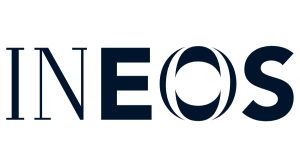CPA Global is the world’s leading Intellectual Property (IP) management and technology company; we have the pleasure this month to speak with their CEO Simon Webster about technology management solutions, the future of IP interlinked with technology, where businesses slip up when regarding their IP and how to stay on top of the globe’s rapid technological advancements.
Your leadership team come from a variety of backgrounds; what sort of backgrounds are they from and how does this help enhance your IP and technology management solutions?
When you are running a global IP management and technology company, you need a variety of skills; you need technical people to create the best solutions, but it is also important to have people that understand the challenges involved in protecting and prosecuting IP.
Toni Nijm, our CITO, for example, has been involved in software development for years but he is also a qualified patent attorney, giving him relevant skills for this role. Our VP of IP solutions, Jayne Durden, is a qualified solicitor that used to work in trademark clearance, so she understands the needs of customers in law firms and corporations. Our Director of Law Firms, Jean Hughes, is also a qualified solicitor and held General Counsel positons in various multinational corporations. This has provided Jean with a unique capability to help law firms better serve their clients.
To be a truly exceptional global company you need to have a diversity of opinions and cultures. You also need to have people that truly understand the issues customers face so they can create, promote and ultimately monetise better solutions to problems.
Many companies in the financial industry have historically been slow to innovate. With the FinTech sector now bringing more innovation to financial services, how will this impact established businesses in the sector?
There is currently a great deal of innovation in the financial technology sector. To name but a few: blockchain currency technology, crowdfunding, mobile payments and data analytics are all capable of disrupting the financial services market.
The issue is that certain standards need to be adopted across global markets to ensure that the industry grows in an ethical and effective way. Technology is neither good nor bad, but it can be used for good or bad purposes. So for every negative story about Bitcoin being used to fund illicit trade on the dark web, there is a small businessperson in a developing market that has had their life transformed positively by mobile payments. The development and deployment of global financial standards can help ensure innovation impacts the industry positively.
Large financial institutions are not always the best companies to create innovation – I should know, I used to work for one - and I think we will see more and more collaboration between large institutions and innovative start-ups with great ideas.
With open source software now being used to develop many products, are companies at greater risk of IP infringement?
The whole landscape of software protection has changed dramatically since the 2014 Alice v CLS Bank case which made it easier to challenge the validity of software patents. Many feared at the time that this ruling could negatively impact growth in the software industry, but this has largely not been the case.
Open source software is different to IP protected software. Commercial software is ‘compiled’ from a source code, which makes it difficult to modify and harder still to copy the original code. For this reason, most commercial software is compiled before being sold.
Open source software includes the original source code with the final software. Customisation of the software is encouraged. Open source software developers see the benefits of enabling anyone to change the source code – this can make the software useful for additional scenarios and may reduce software bugs. Creators of open source software offer an open licence to use the source code, so there is no issue around misuse of IP.
A more problematic area is joint collaboration between companies. Unless there is a clear agreement in advance as to how IP will be protected, companies can risk losing control of their intellectual property. This is particularly concerning for smaller businesses that are collaborating with larger brands as they may not have the legal muscle to fight a larger company.
How have services developed over the past few years to help aid law firms with their IP related matters?
Law firms face a far more challenging world. Filings are at an all-time high. Fluctuating policies in different territories, and new developments such as the European Union Unitary Patent add complexity.
In principle, filing for protection is relatively simple but protecting an idea globally increases the complexity. For an international filing there could be hundreds of people involved. Each person will communicate and invoice in different ways, creating an administrative nightmare. An agent network of experts will deal with local patent offices, alongside language professionals to interpret innovation, translate and apply it to relevant local jurisdictions. Filing a patent for global protection requires the expertise of several hundred people and comes at a price tag of many hundreds of thousands of dollars.
This is where technology can make a difference. The most advanced law firms are now deploying advanced IP management platforms to transform filing efficiencies, reduce risk of human error and free up lawyers to focus on providing strategic counsel.
Thinking ahead, what else do you think technology will be able to offer businesses and law firms in relation to their IP matters? Is there anything you wish to see, but is not yet achievable?
At our annual customer conference in Nashville last year I made the point that the IP industry has been poorly served by technology. Prior to arriving at CPA Global, I played my part in the UK Financial Services’ rapid technology-led revolution. That is a revolution that has yet to happen to IP.
This is ironic because IP has played a central role in the innovation industry for centuries and yet is probably the last major industry to fully benefit from the disruptive effects of technology. The IP industry has evolved from paper delivery, through fax to email, but processes are still too cumbersome and disjointed.
Today it is possible to get a wealth of insight from IP to shape future business growth, create compelling competitor insight and drive the next generation of research and development effectively. But to fully benefit from this opportunity, corporates and law firms need to have IP information in one place, seamlessly linked so that an amendment to a filing is reflected, for example, in the subsequent renewal. When this is possible, technology is no longer a different way to do the same tasks, but instead a facilitator of new ways to generate business benefit. This is the objective behind The IP Platform™, CPA Global’s new technology to fundamentally change how technology supports IP professionals.
As CEO, how do you ensure your team stays at the top of their game at being the world’s leading IP management and technology company?
You do not have to love technology, but you must love the transformation that technology can bring to your customer. There is a quote that I like from Jeff Bezos of Amazon: “If you’re competitor-focused, you must wait until there is a competitor doing something. Being customer-focused allows you to be more pioneering.” I believe this is a great way to look at running a business.
Technology is essentially a tool that enables you to create something better for the customer. My objective is to lead a company that is not a technology company per se, but one that uses technology to delight the customer.
What that means for our people is understanding more about what IP specialists, law firms and large corporations need and building solutions that deliver.
Are there any common misconceptions that firms or businesses have in relation to their IP and patents?
Yes. For me one issue is what I describe as the “democratisation of ideas”. Decades ago, before digital disruption, people worked in silos; ideas were created by engineers and products were sold by sales people.
Today anyone can create and execute ideas. Think about some of the fastest growing brands in the world: Uber, WhatsApp, Spotify – these started as ideas about how travel, communication and music could be delivered in a more effective way and each have disrupted large industries. Today you do not need to be an engineer or software developer – all you need is an idea and the right people to help you execute quickly and globally.
For IP professionals, this is an amazing opportunity to grow the importance of their role – because protecting ideas quickly is more critical than ever. But to fully benefit from this opportunity we need to ensure IP is as fast paced as the rest of the business. My perception is that many entrepreneurs still see the IP industry as slow and difficult. This must change if we are to ensure that IP is central to the new digital and globalised economy.




















